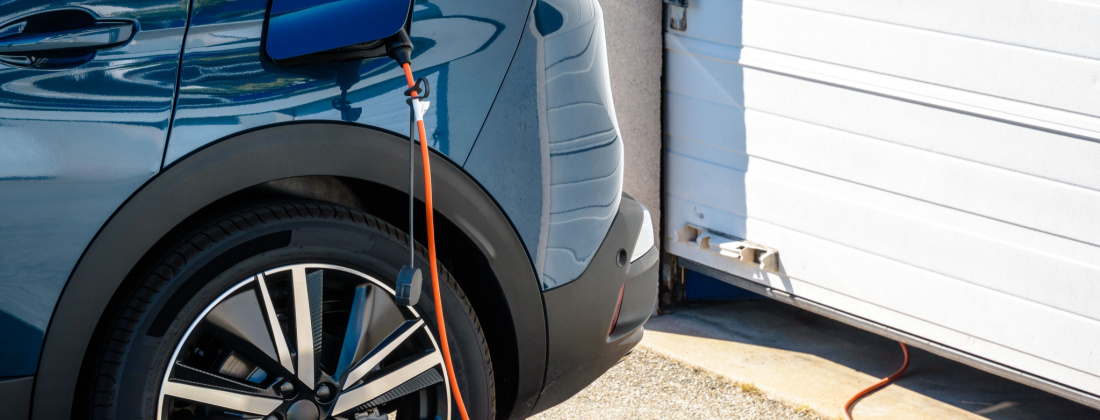Buying Tires for Electric Vehicles? Tips from Trail Tire Auto Centers
November 10, 2022
Tires

5 Most Common Mistakes People Make When Buying Electric Vehicle Tires (And How to Avoid Them)
A lot of people are going electric these days to reduce their carbon footprint and save money at the gas pump. Whether you already own an EV or are considering switching from gas-powered to electric-powered vehicles, there is one aspect you should pay close attention to that you might not have thought about before—your tires!
Electric vehicle tires come in different sizes, specialties, and functions, and if you don’t do your research ahead of time, you might end up getting the incorrect size and type of tires. When shopping for electric vehicle tires, you must keep two things in mind: first, the tires you purchase should be compatible with your vehicle; second, they must be able to withstand all of the stress that comes with driving an electric vehicle. If you go with winter tires, make sure they are certified winter tires for your area.
With that said, if you’re looking for the right tires, visit Trail Tire Auto Centers for great deals and discounts on all types of tires, including EV-specific, regular tires, summer and winter tires, wheels, and more.
Let’s take a look at some of the most common mistakes people make when shopping for electric vehicle tires and how you can avoid them.
Mistake #1: Choosing Tires That Are Incompatible with Your Electric Vehicle
When you are buying new electric vehicle tires, you must remember that these are not your typical car or motorcycle, and they require a special type of load-rated tread. What’s more, they require highly specialized, high-quality rubber compounds. Standard tires do not satisfy these requirements.
Choosing a tire made specifically for EVs ensures that it has the proper load rating and is optimized for range efficiency, low noise output, and low rolling resistance. You want a tire with an E-rating on its sidewall (or in its name) that matches your EV’s drive rating as well as a traction level (T-rating).
You may need two sets of tires for your vehicle for optimal performance in all weather conditions; one set for summer driving or all-season tires and another set of winter tires.
Mistake #2: Ignoring The Tires’ Load Rating
The heavy batteries used in electric vehicles can put significant strain on suspension components, especially shocks, struts, and, of course, wheels and tires. Some car manufacturers recommend that their vehicles be fitted with heavier-duty shock absorbers to handle the heavy batteries.
It’s easy to forget to check a tire load capacity, especially for passenger cars, since we assume that the vehicle isn’t carrying any loads. But on the contrary, the battery as well as the weight of its occupants can be damaging to the electric vehicle’s tires.
The load rating of a tire is directly related to its safety because it ensures that the tire can withstand the strains and stresses placed on it during braking, cornering, and acceleration, as well as over bumps, potholes, and rough road surfaces.
Mistake #3: Sacrificing Rolling Resistance for Grip
Many electric vehicle drivers prefer to fit their vehicles with ultra-high performance (UHP) tires for more precise handling and control. These are typically used as an enhancement to an already high-performing electric vehicle.
There is nothing wrong with desiring the additional grip and control that UHP tires provide. However, by using UHP tires on your electric vehicle, you are sacrificing important factors such as rolling resistance, which could be hazardous.
A significant change in rolling resistance can result in larger reductions in your car’s range.
Mistake #4: Not Knowing the Correct Tire Size
This is one of, if not the most important things you should check before purchasing new tires for your electric vehicle. It is imperative that you know what tire size your vehicle calls for (this information can be found in your owner’s manual). This should especially be checked when you change to winter tires from the original vehicle tires.
If you choose a size larger or smaller than required, it could lead to poor performance or even blowouts. The larger the wheel diameter, the better the rolling resistance due to the larger contact patch between the road and the tire but the more drag your car will experience (which lowers the range). Problems with incorrect fitment can also lead to excessive wear of the tire.
Mistake #5: Evaluating Quality on the Basis of Price
Instead of going for the price, focus on getting quality tires instead. The key is to get the best deal on high-quality tires that will last a long time. You can find some excellent high-performance EV tires for a fraction of the cost you expected.
Tires are an important component of your electric vehicle and have a significant impact on its performance. The tire purchasing process does not have to be complicated, but you will want to give it some thought to ensure you find the right one for your EV. You’ll be well on your way to a great set of new electric car tires if you avoid these blunders.
Back

